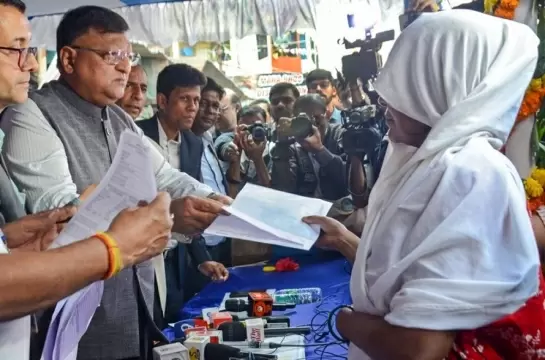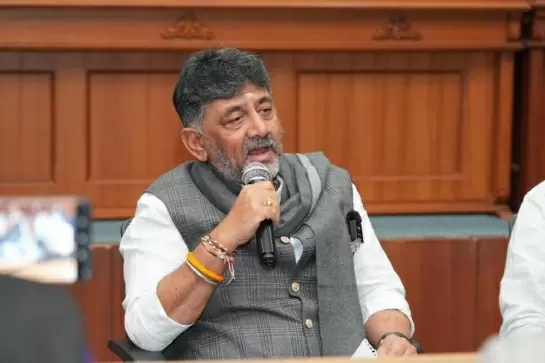Aviations' future that may address Delhi's air pollution
29-November-2019
Imagine, a post-modern aviation technology that may help address Delhi's air pollution woes along with the world's. Imagine a pilot walking up with his iPad into the cockpit that once placed there, will start interacting with the flight system in the cockpit.
Sounds surreal? If things remain on track, an wild disruptive imagination from Thales, an innovation giant, may become a reality as early as in the next five years.
Thousands of miles away from the smoggy horizons of Delhi NCR, in Toulouse, a quaint town in France, the group is giving final shape to its imagination. Away from public knowledge, a disruption is being readied to change the world of aviation. Pure Flyt, as Thales calls it's "baby", is ready to make the present way we fly, look primitive, or may reduce it to being redundant.
"Under the scheme we have envisioned, if there is bad weather on the flight path, the pilot will be informed through his tablet which can be an iPad. Or if a major breaking news scenario emerges while flying over a country due to its sudden political developments may be unsafe, the pilot will be informed of the same as well. He won't wait till end. Rather, he enters the cockpit and seeks a different route immediately," says Andre Cleroux who is giving Pure Flyt the final shape at Toulouse.
The Product Line Director of Thales adds, all these revamped updated data from the pilot's iPad will be then shifted to the Flight Management System or more commonly known as FMS.
This assumes significance, particularly after Malaysia Airlines Flight MH17, a scheduled passenger flight from Amsterdam to Kuala Lumpur was shot down on July 17, 2014 while flying over volatile eastern Ukraine, killing all 283 passengers and 15 crew members.
This is not all. The Pure Flyt is claimed to be so intelligent and futuristic that it will compute the best route automatically, that will use the least amount of fuel or ATF as it is called it in aviation parlance.
While, it makes it an impressive proposition for the industry that leaves no opportunity to save an extra penny but will cut down on the emission of carbon dioxide on a Himalayan scale. To be specific, Thales claims, within a fixed period it will be able to significantly cut down carbon dioxide emission. In fact, the projection is so ambitious, when questioned about its achievability, it's Chief Technological Officer Marko Erman told IANS, "The Internet will emit more carbon dioxide than the flights. Wait and watch."
While, it will benefit everyone under the sun, it makes extra sense for a country like India which is battling unprecedented air pollution that has made its capital city resort to measures like Odd-Even car rationing system to closure of schools to deal with the apocalyptic situation.
Speaking to IANS, Merko asserted, Pure Flyt will substantially play a part in addressing climate change in India too.
Thales whose flight management system has powered more than 6,000 aircraft and more than 200 airlines, claims it is already in the stage of certification and the world may get a taste of this next gen of flying in as early as 2024.
Thales product team claims, giants like Airbus and others with whom they have been in regular talks with, will have no option but to avail it purely because it makes business sense for them. Does it mean Pure Flyt, which works in a way that only the world has seen in sci-fi movies so far, leaves the current crop of flight ecosystems redundant. The answer is yes.
But given the huge investment Airbus and Boeing has already made in the existing avionics, the acceptance of Pure Flyt is less likely to be overnight and more likely to be in a phased manner.
What's interesting, the iPad will not only interact with the flight system but also the other way round. But to ensure the system isn't hacked, which can have disastrous consequences, the organisation is creating multiple layers of security and firewall.
So brace up for the future and fasten your seat belt. Pure Flyt, as it claims, is executed successfully by 2024 on an industrial scale, a small tablet may end up becoming the brain behind a aircraft's flight and in the process many cities around the world including Delhi that are plagued by horrifying levels of Air Quality Index (AQI), will be more breathable.-IANS
Opposition Moves to Impeach Justice G R Swaminathan; Kanimozhi Cites Loss of Public Trust
Akhilesh Yadav Slams Centre, Yogi Govt Over Pollution And SIR Drive
PM, HM Set Out To Become Historians But Became ‘Distorians’: Jairam Ramesh
Under-16s Blocked From Social Media In Australia As Ban Comes Into Force
Armed Man Arrested At Vijay’s Puducherry Rally Venue, Security Tightened









